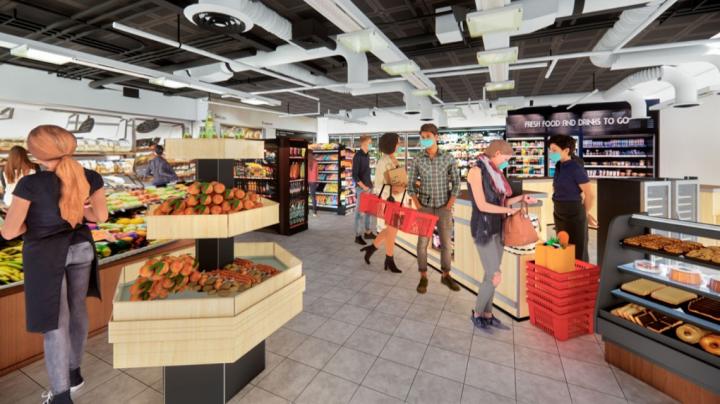
Credit: Cornell University
ITHACA, N.Y. – New York City residents are four times more likely to choose a store where shoppers respect 6 feet of distancing as opposed to one where no one is social distancing, according to an experiment by Cornell University researchers conducted using a 3D simulation.
Ricardo Daziano, associate professor of civil and environmental engineering, is principal investigator on a one-year, $102,700 RAPID grant from the National Science Foundation to use immersive virtual reality (VR) to continue assessing New Yorkers’ perceptions of social distancing as the COVID-19 pandemic evolves.
“We want to understand how people are making decisions based on compliance with the health guidelines,” Daziano said. “Until a vaccine is developed, policymakers need to not only find the best incentives for people to avoid physical proximity, they also need to create plans for relaxing social distancing in the future. The behavioral forecasts from the models developed in this project will help guide those decisions.”
The preliminary experiment was conducted online with New York City residents in May, before the city entered phased reopening. At the time, shoppers frequently needed to wait in line outside grocery stores so the stores wouldn’t exceed a limited capacity. The researchers found that the amount of distance mattered: respondents were four times more likely to choose stores where shoppers were spaced 6 feet apart in line, and 2.6 times more likely to choose those with 4 feet of space, as opposed to stores where they weren’t socially distanced at all.
New York City residents were 1.5 times more likely to choose a store where shoppers were wearing masks – a significant result, but much lower than their preference for stores with social distancing. Daziano said this result may well change in future studies, as more evidence has emerged about the benefits of wearing masks.
In the next wave of experiments, participants will experience social distancing scenarios using head-mounted VR displays. The researchers will then construct mathematical models to analyze how people with varied backgrounds and political affiliations change their behavior in response to health threats.
The researchers plan to survey city residents about different scenarios to gauge their perception of reopening as it occurs. For example, asking people to choose whether they’d rather sit indoors or outdoors at a restaurant – where the tables inside are much farther apart than the outdoor tables – could reveal valuable information about how people assess risk.
“From a policy perspective, understanding that will help us plan or maybe redesign the reopening of businesses,” said Daziano. “We want to understand who is more likely to respect health guidelines, what the risk perceptions are in public spaces and how we can create incentives for individuals to sustain social distancing, so we can help guide decisions.”
###
Media Contact
Lindsey Hadlock
[email protected]
Original Source
https:/




